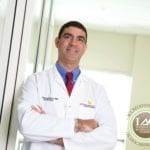UCF Health’s Cardiologists in Orlando – Heart Specialist Doctors
If you’re seeking expert heart care, UCF Health’s team of cardiologists in Orlando is here to provide top-notch treatment and personalized care for all heart-related conditions. With specialized expertise in heart health, including experience with UCF athletes, our heart cardiovascular specialists are dedicated to helping you achieve optimal heart health. Whether you need a routine checkup, treatment for a specific condition, or advanced heart care, we are with you on your journey to a healthier heart and cardiovascular care.
Our Cardiologists in Orlando – Heart Medicine Doctors
UCF Health cardiologists in Orlando are dedicated to providing expert care for heart-related conditions. With a focus on advanced treatments and personalized care plans, our interventional cardiologists heart medicine doctors are committed to helping you maintain a healthy heart and improve your overall well-being.
- English
- English
- French
Common Conditions and Treatments for Heart Health
View some of our Cardiologist’s most commonly addressed conditions and treatments.
Angina
Angina is chest pain caused by reduced blood flow to the heart. It feels like pressure or tightness and can be triggered by physical activity or stress. Treatment focuses on improving blood flow through lifestyle changes, medications, or procedures like angioplasty.
Artery Disease
Artery disease, or peripheral artery disease (PAD), occurs when arteries become narrowed or blocked, often causing pain or cramping in the legs. Treatment includes medications, exercise, and surgery to improve circulation.
Arrhythmia
Arrhythmia refers to an irregular heartbeat, causing dizziness, fatigue, or shortness of breath. It is treated with medications, lifestyle changes, or procedures like pacemakers or ablation to restore normal heart rhythms.
Heart Disease
Heart disease is a broad term for conditions affecting the heart, like coronary artery disease or heart failure. Treatment often includes medications, surgery, and lifestyle changes to manage the condition.
High Triglycerides
High triglyceride levels increase the risk of heart disease. Lowering triglycerides is achieved through dietary changes, exercise, and medications if necessary.
Stress Echocardiograms
A stress echocardiogram evaluates heart function during physical stress or medication. It helps diagnose conditions like coronary artery disease and assesses blood flow and blockages.
Peripheral Vascular Disease
Peripheral vascular disease (PVD) occurs when blood vessels outside the heart become narrowed or blocked, causing pain or numbness in the limbs. Treatment involves lifestyle changes, medications, and sometimes surgery.
Coronary Artery Disease
Coronary artery disease (CAD) involves blocked or narrowed arteries that supply blood to the heart. Treatment typically includes lifestyle changes, medications, and procedures like angioplasty or stenting.
Heart Failure
Heart failure occurs when the heart can’t pump blood effectively, causing fluid buildup and shortness of breath. Treatment may include medications, lifestyle changes, or surgery.
Heart Attack
A heart attack happens when blood flow to part of the heart muscle is blocked. Immediate treatment is critical and may include medications, surgery, or other interventions.
Valvular Heart Disease
Valvular heart disease occurs when one or more heart valves don’t function properly. Treatment includes medications and sometimes surgery to repair or replace the valve.
Lipid Management
Lipid management involves controlling cholesterol and triglyceride levels to reduce the risk of heart disease. This includes a healthy diet, exercise, and sometimes medications.
Hypertension
Hypertension (high blood pressure) strains the heart and increases the risk of heart disease. Managing hypertension includes lifestyle changes, medications, and regular monitoring.
Postural Orthostatic Tachycardia Syndrome (POTS)
POTS is a condition where heart rate increases upon standing, leading to dizziness and fatigue. Treatment includes lifestyle changes, physical therapy, and medications.
Inappropriate Sinus Tachycardia (IST)
Inappropriate sinus tachycardia causes the heart to beat faster than normal, often triggered by stress or exercise. Treatment may include medications or procedures like ablation.
Neurally Mediated Syncope
Neurally mediated syncope (NMS) is fainting caused by a drop in blood pressure, often triggered by standing or stress. Treatment includes lifestyle changes, medications, and measures to improve blood flow.
UCF Health’s cardiology practice incorporates all aspects of heart disease into the patient’s treatment plan, from lifestyle modifications to the latest evidence-based drug therapies.
Our Orlando cardiologists treat a variety of conditions related to the heart. We perform screenings, tests and evaluations to diagnose heart conditions, as well as treatments and monitoring techniques to improve the function of the heart.
We also offer expert treatment for Postural Orthostatic Tachycardia Syndrome (POTS), which causes people to have a rapidly increasing heartbeat when they stand up from sitting or lying down.
From your very first appointment with us, we show you personal attention and provide compassionate care. We ensure that you are as informed as possible when it comes to your current condition and available treatment options.
Our Central Florida cardiology specialists work seamlessly to provide patients with the solutions they need to achieve optimal heart health. For your convenience, we see cardiac patients at both UCF Health locations.
On-Site Cardiovascular Lab
When testing is necessary, the East Orlando location is equipped with a noninvasive cardiovascular lab. On-site diagnostic services include echocardiography, stress echocardiograms, Holter monitoring and coronary event monitoring. One of our Central Florida cardiology specialists, Dr. Bernard Gros, is a Level 3-trained echocardiography physician—the highest level that can be earned.
The UCF Health cardiovascular lab has earned echocardiography accreditation in adult transthoracic and adult stress testing from the Intersocietal Accreditation Commission (IAC). This designation ensures the highest level of quality and is required by many insurance providers.
On-Site Diagnostic Cardiology Services Offered
Our on-site diagnostic cardiology services provide comprehensive heart health assessments to help identify and manage cardiovascular conditions with precision and care.
Echocardiography
Echocardiography tests are performed to create real-time images of the heart. This technology sends high frequency sound waves throughout the body and records the “echo” of the sound waves bouncing off of the heart, to provide a visual of the heart’s chambers and vessels. Echocardiograms are used to identify blood clots, to assess how well the heart is pumping blood, and to examine the heart rhythm.
Stress Echocardiograms
Stress echocardiograms, sometimes called stress echos, serve to assess the function of the heart and assess blood vessels. During this test, the patient will exercise on a stationary bike or treadmill while our cardiologists assess blood pressure and blood flow. A stress echo is performed to diagnose various heart conditions and to identify decreased blood flow in the vessels.
Holter Monitoring
Holter monitoring tests involve a portable device that patients wear for 24 to 72 hours at a time. The purpose of these tests is to monitor heart activity, and they’re often used for patients experiencing heart arrhythmias, or irregular heartbeats. This device produces an electrocardiogram recording of data that our Orlando cardiologists use to assess the heart’s rhythm and function during the time it was worn.
Coronary Event Monitoring
Coronary event monitoring technique is used to record electrical activity in the heart. This test includes a portable device that patients wear for weeks or months at a time. For patients experiencing chest pain, heart arrhythmias or faintness, coronary event monitoring devices are often utilized to monitor electrical activity in the heart during cardiac events. Some monitoring devices use sticky electrode pads, while others are worn on the wrist.
Cardiologists in Orlando: FAQs
If you’re seeking heart care in Orlando, here are some frequently asked questions to help guide you in finding the right cardiologist and understanding your options for heart health treatment.
Where can I find the best cardiologists in Orlando?
Orlando has many highly experienced cardiologists specializing in a variety of heart conditions. You can find top-rated cardiologists by visiting reputable medical centers or hospitals in the area, such as Orlando Health or AdventHealth, which offer expert heart care services.
Can I go straight to a cardiologist?
In most cases, you may need a referral from your primary care physician (PCP) to see a cardiologist in Orlando. However, some cardiologists accept direct appointments without a referral, especially if you have a known heart condition or urgent symptoms. It’s best to check with the cardiology office or clinic before scheduling your visit.
Do all Orlando cardiologists offer heart health screenings?
Yes, many cardiologists in Orlando offer comprehensive heart health screenings, including blood pressure checks, cholesterol level tests, and advanced diagnostic tests like stress echocardiograms and EKGs, to help detect heart issues early.
Locations
UCF Health Faculty Physician Practice offers primary and specialty care at its East Orlando location at University and Quadrangle Blvd. Near the main UCF campus.
UCF Health Faculty Physician Practice – East Orlando
Address
3400 Quadrangle Blvd, Orlando, FL 32817
Phone Numbers
Main: 407-266-3627 (DOCS)
Billing: 407-882-4802
Fax: 407-266-4910
Records: 407-882-4751
* UCF Health Faculty Physician Practice is located in first-floor Suite 160 & third-floor Suite 360
UCF Health Faculty Physician Practice – Lake Nona
Address
9975 Tavistock Lakes Blvd, Orlando, FL 32827



